Turkey’s once-booming folk-rock industry has mostly vanished, but a few holdout producers are still cranking out the hits.
Just past noon on a balmy late-spring day in İstanbul, the somber sounds of a solitary clarinet waft out of an empty storefront in the formerly bustling heart of Turkey’s music industry.
In the 1980s and 90s, dozens of music producers and record labels were busy churning out successful recordings of Turkish folk music and Arabesque from the İstanbul Manufacturers’ Market (İMÇ), a sprawling, modernist complex located between the Golden Horn and the iconic fourth-century Valens Aqueduct in İstanbul’s Unkapanı neighborhood. Today, mere remnants of the once-lucrative industry remain.
When İstanbullites wax poetic on the music industry of yore, Unkapanı is always mentioned in the past tense. But while many assume that the old industry has dried up completely, a handful of remaining producers trudge on through mountains of difficulties. Though business was booming in the era of LPs, 45s, and cassettes, the practical obsolescence of music in a physical format has taken its toll.
“In 2006, 100 million cassettes and CDs were sold in Turkey. Nowadays, annual sales have fallen to three million,” says Halit Nart, a singer with numerous recordings under his belt who doubles as the producer and chief executive of the Mert Müzik label. While sales figures for hot releases used to hit seven digits, nowadays a label is lucky to sell 5-10,000 physical copies of an album.
Turkish logic dictates that one will continue until death
Turkish musical taste was changing along with the means of distribution. Western pop influences reasserted themselves in mainstream Turkish music, and the distinctively Anatolian-rooted traditional Turkish folk music and Arabesque genres took a backseat, largely relegated to cultural festivals, taverns, dank bars, and cassettes on dusty shelves. And Unkapanı—known as the hub for those styles—took a sharp dive.
But a handful of labels and producers persist. Although shuttered shops outnumber active businesses in Unkapanı, there are still a handful of establishments that bewilderingly resist closure despite unfavorable odds.
“Turkish logic dictates that one will continue until death. If a guy has no money in his pocket, he still puts on a suit and sprays on some cologne. He might even dress better than a rich man. So there are firms here but most of them are ‘sign companies.’ Outside there might be a sign hanging, but inside there is no production,” says Nart.
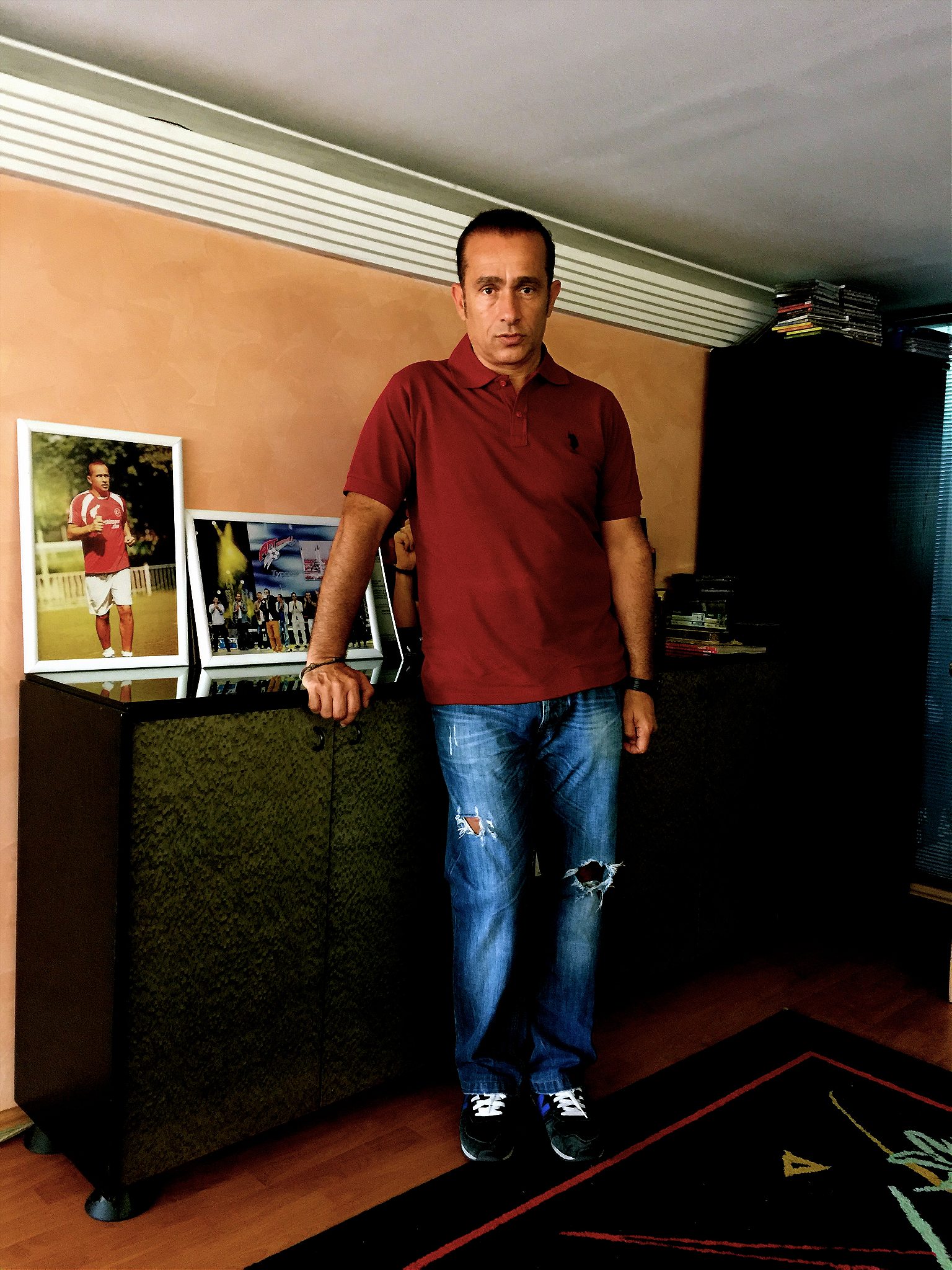
An industry veteran, Nart sports a pearly white set of teeth and his build belies his 52 years of age, perhaps a result of his long stint as an amateur football player. Nart first encountered the music industry as a nine-year-old newspaper salesman in the early 1970s, when Anatolian rock—a psychedelic fusion of Western rock music and Anatolian folk styles perhaps best embodied by Erkin Koray—was at the height of its popularity. The uncontested queen of Turkish pop music, Sezen Aksu, had not yet emerged on the scene.
Nart was hustling papers inside an arcade in İstanbul’s central district of Şişli. An adult competitor who had a table set up outside the arcade caught Nart working “his territory” and smacked the young boy in the face. As Nart sat in tears, a man approached him and asked why he was crying. Nart says it was Erol Büyükburç—the Elvis of Turkey—who was then at the height of his popularity. Büyükburç consoled the young boy by buying two newspapers and giving him TL 200 ($75). It was the most money Nart had ever seen.
After completing his mandatory military service in the mid 1980s, Nart saw an ad in the paper for a counter clerk position at Sembol Plak, one of the premiere labels of the time, which had released records by the era’s biggest stars, including Aksu, Bülent Ersoy, and Kibariye. He took the job at the label’s Unkapanı office, and within six months, Nart became a managing director. At one point, Büyükburç came by the office on business and Nart recalled his encounter with the singer from years earlier.
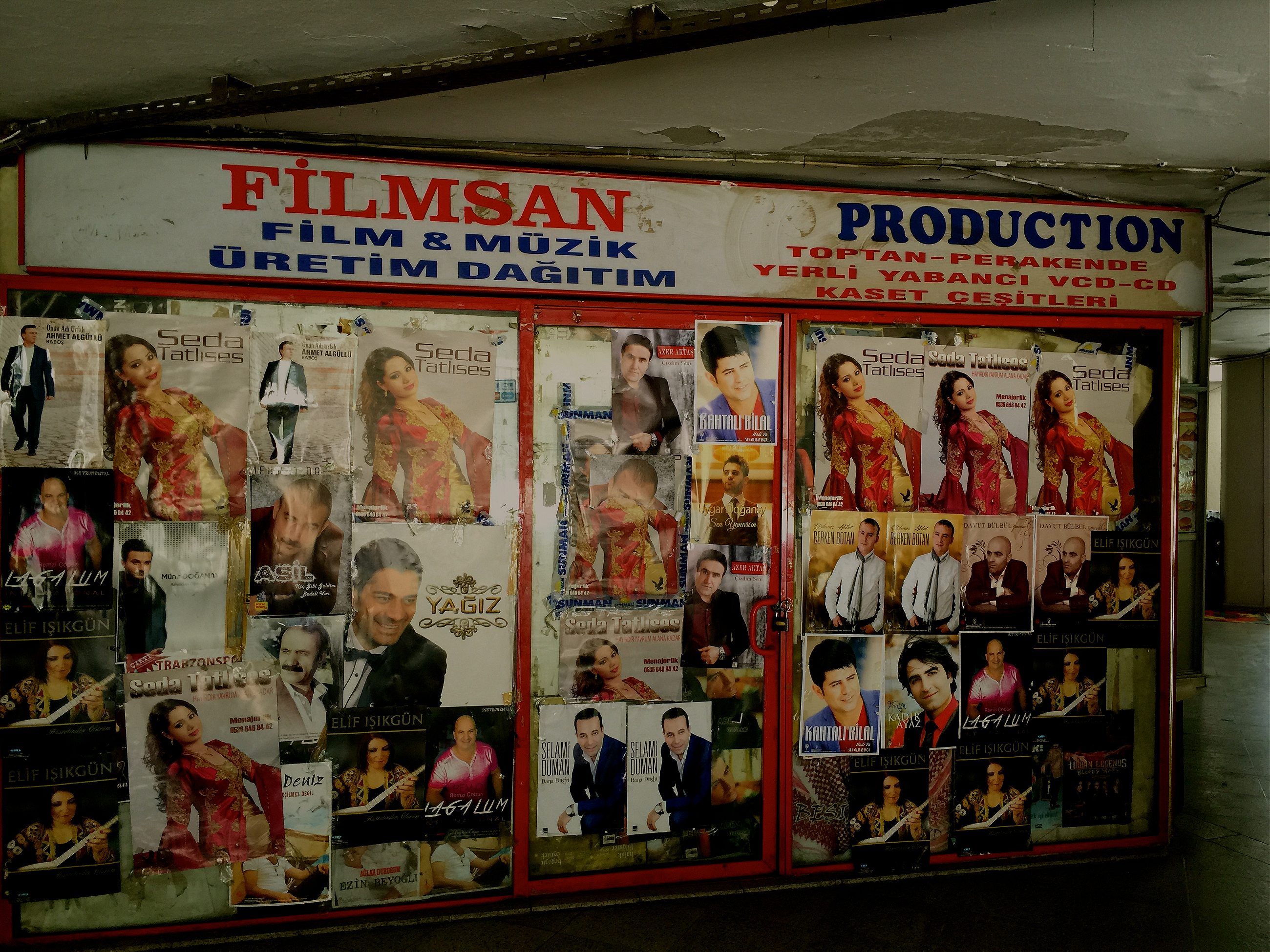
Leaving his position at Sembol Plak, Nart founded Mert Müzik in 1992, when the industry was still flourishing. He has released a string of records, mostly by artists past their prime. The most successful was an album of lugubrious folk songs from İlyas Salman, better known for his acting and directing efforts. The record sold 150,000 copies, not exactly a smash hit. Nart has managed to stay in the business for decades, but he hasn’t exactly struck it rich.
After years of releasing work by other artists, Nart decided to devote some time to his own music. He received an award for his first album, and it was Büyükburç who presented the plaque onstage. The iconic legend passed away earlier this year at the age of 78. “May God rest his soul,” Nart says somberly.
As we chat in his office over tea, one can’t help but notice its unnecessarily large size: Mert Müzik has dwindled to a four-person operation operating in an airy two-story space. Nart still comes to work every day trying to keep the label afloat, although its website is no longer functional. “I’m working with a Black Sea-style group and a couple of pop singers,” he says. The room outside of Nart’s office is a wall of empty shelves. Before I leave, Nart stuffs four of his own CDs into my hands. He’s trying to get rid of the boxes of copies collecting dust.
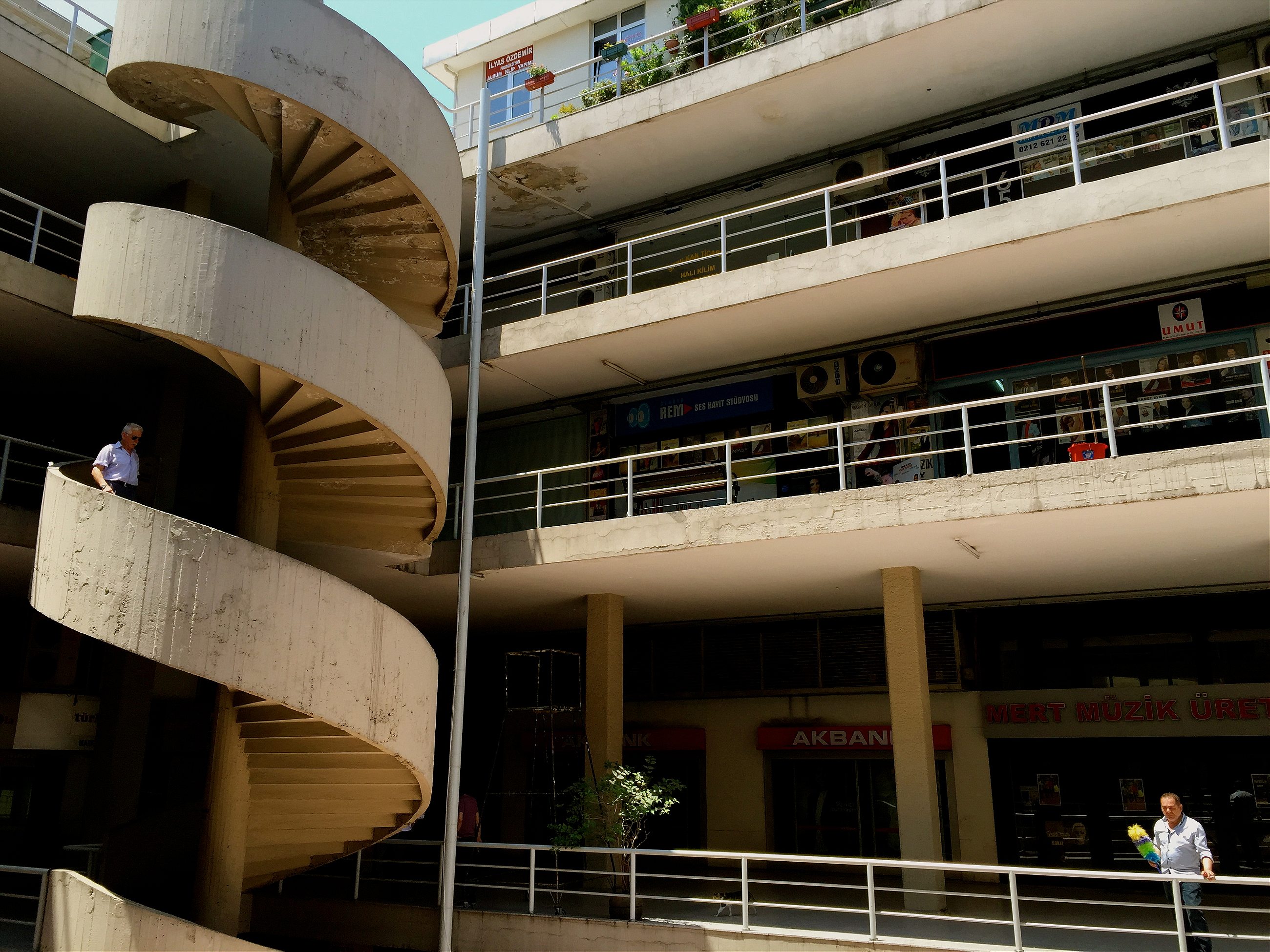
The İMÇ is a massive, multi-block building that has seen better days. The building holds more than 1,000 shops, but many are vacant. One wing hawks industrial sewing machines, another sells Islamic clothing for women, another nothing but curtains. Lonely cafes whisk trays of tea to small groups of shop owners with little more to do than smoke and reminisce about when cassettes and 45s sold like hotcakes. A kiosk located at the very end of the İMÇ is famous for its buttery, chickpea-dotted rice served beneath a bed of shredded chicken. It might be the most successful business in the area. The behemoth structure seems to have outlived its purpose, and in an Istanbul where valuable centrally-situated land is quickly gobbled up to build hotels and upscale residential complexes, the İMÇ could soon find itself a relic of the not-so-distant past.
The music producers’ block harnesses by far the most nostalgia in its windows with its dated yet charming 70s-era signage. It’s not hard to sense what the atmosphere was like during busier days, now long gone.
Fikret Kuroğlu, a 51-year-old Kurd from the eastern province of Van, has worked in Unkapanı since 1982. Via his label Silvana, he now releases mostly Kurdish-language music, something that was inconceivable when he first entered the music sector. The windows of his small shop are covered in posters of Kurdish musicians.
It was illegal to speak Kurdish in Turkey until 1991, and even years later, Kuroğlu was falsely accused of releasing music with separatist political sentiment, a charge he categorically denies. For many years, an advocate of Kurdish music or literature could expect to face accusations of supporting the Kurdistan Workers’ Party (PKK), which fought a bloody, three-decade long battle with the Turkish army in the name of Kurdish cultural rights and autonomy. Though the Unkapanı music scene has generally slowed, cultural transformations in Turkey have steadily eroded the taboo surrounding Kurdish language and art, allowing Kuroğlu to produce music in his mother tongue. “I take pride in Kurdish music,” Kuroğlu says.
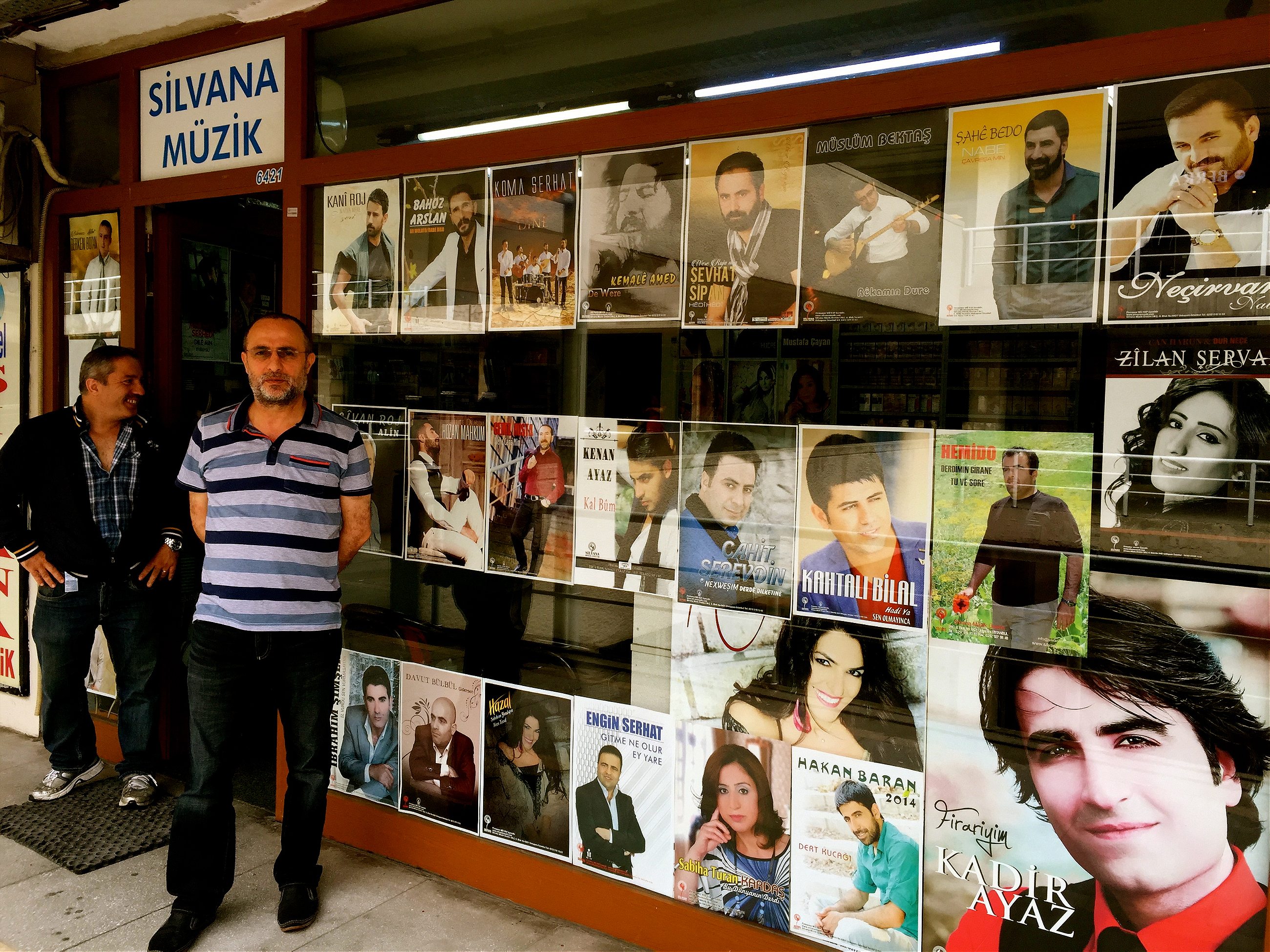
In the 1980s, Kuroğlu worked with the legendary Ahmet Kaya on his first album “Ağlama Bebeğim” (Don’t Cry, My Baby). Kaya, a Kurd from the southeastern province of Malatya, sold millions of Turkish-language albums in the 80s and 90s. In 1999, he announced at an awards show that he had composed a Kurdish song and was looking to produce it, a statement that incited a vicious reaction from some members of the audience, who tossed silverware in Kaya’s direction. The incident snowballed and forced Kaya to flee to Paris, where he died of a heart attack in 2000.
Kaya’s troubles spanned his entire career. The release of “Ağlama Bebeğim” was initially outlawed, says Kuroğlu, who fought for the ban to be overturned. Kuroğlu went on to produce six more cassettes with Kaya.
Nowadays, although Kuroğlu can freely produce albums in Kurdish, something he was never able to do with Kaya during their glory years, he says he is lucky if he can sell a thousand copies of one release. He stays afloat via membership in an association that pools licensing revenues and other royalties in order to support the suffocated industry.
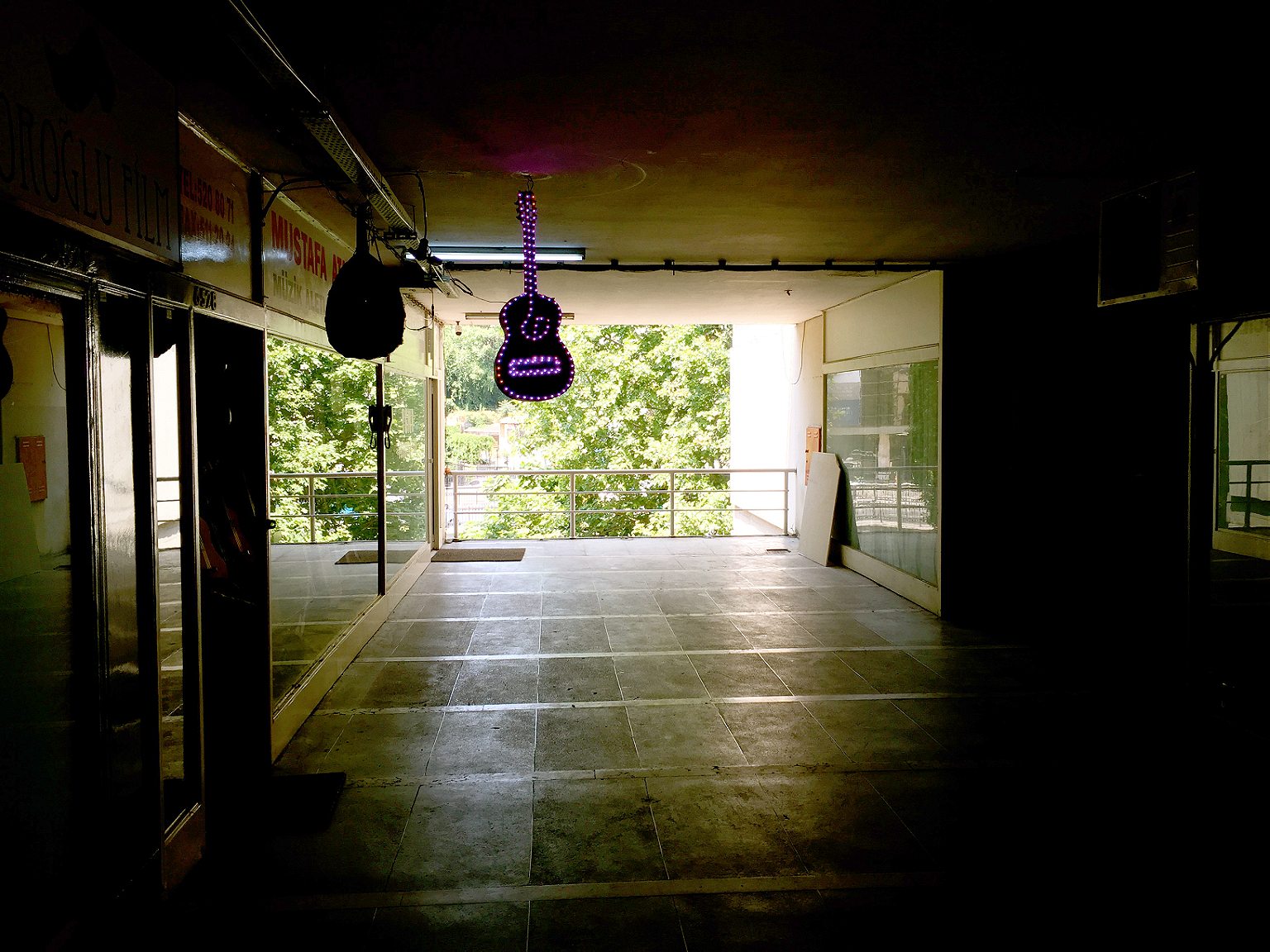
“Even if it’s not much, we receive a check from the Turkish Phonographic Industry Society (MÜ-YAP) once every three months,” Kuroğlu says. This money enables Kuroğlu and his neighboring stalwarts to stay on their feet. MÜ-YAP—established in 2000, just after the industry began to take a dive—consists of just under 200 members, including handful of labels and producers still headquartered in Unkapanı.
“Unkapani culture is dead. In the old days, its corridor would be lined with folk singers looking to get famous as soon the shops opened. We were trying to let their voices be heard. Now there’s no one here. These people were an important part of Unkapanı culture, but now no one stops by,” Bülent Seyhan—current chairman of MÜ-YAP—said in a 2008 interview. Those who once lined up in Unkapanı have since set their sights on television singing competitions.
Though business is slow in Unkapanı, there is an unmistakable sense of resolve that reverberates from the walls of the rarely patronized establishments. Aging men run the remaining shops, and this is the only business they know. Unkapanı’s last music producers might not be raking in any money, but they aren’t going anywhere.
“No hope is lost in a life that remains,” says Nart with a smile, citing a Turkish proverb.